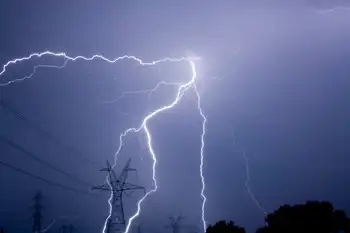U.S. lifts moratorium on new solar projects
DENVER, COLORADO - Under increasing public pressure over its decision to temporarily halt all new solar development on public land, the Bureau of Land Management said that it was lifting the freeze, barely a month after it was put into effect.
The bureau had announced on May 29 that it was no longer processing new applications to build solar power plants on land it oversees in six Western states after federal officials said they needed first to study the environmental effects of solar energy, a process that would take two years.
But amid concerns from the solar power industry, members of Congress and the general public that the freeze would stymie solar development during a particularly critical time for energy policy, the bureau abruptly reconsidered.
“We heard the concerns expressed during the scoping period about waiting to consider new applications, and we are taking action,” the bureau’s director, James Caswell, said in a statement. “By continuing to accept and process new applications for solar energy projects, we will aggressively help meet growing interest in renewable energy sources, while ensuring environmental protections.”
In the meantime, the bureau will continue with its plans to conduct a sweeping study on the environmental impacts of large-scale solar development on public land in Arizona, California, Colorado, Nevada, New Mexico and Utah, said a spokeswoman, Celia Boddington.
Since 2005, the bureau has received more than 130 applications from private companies to build plants in those states, where large amounts of sun-scorched land make for prime solar real estate. Those proposals cover more than a million acres and have the potential to power 20 million homes.
The bureau will process all of the applications it received before the freeze, and now, as a result of the decision, will continue to accept new ones, studying the environmental effects of each proposed plant individually, Ms. Boddington said.
Solar energy advocates, who had lobbied against the freeze at public meetings that are being held by the bureau throughout the West, were pleased with the decision.
“We’re encouraged that the B.L.M. lifted their moratorium, but we’re only halfway there,” said Rhone Resch, president of the Solar Energy Industries Association. “We now need to get them to expedite the permitting of the solar projects on public land.”
Mr. Resch said the decision was important given that while the bureau managed to approve a considerable number of oil and gas leases on public land, it “had yet to lease a single acre of land to the solar industry.”
Political opposition to the freeze was also a factor in the turnaround, and Ms. Boddington noted that there was “significant Congressional interest in the issue.”
Representative Mark Udall, Democrat of Colorado, wrote a letter to Interior Secretary Dirk Kempthorne, urging the government to continue processing new applications.
In response to the bureau’s change of course, Mr. Udall said in a statement, “This decision sends the right message to the renewable-energy industry that we are committed to working with them to reduce our reliance on foreign oil and increase our energy independence in an environmentally sound way.”
Related News

Hydro One crews restore power to more than 277,000 customers following damaging storms in Ontario
TORONTO - Hydro One crews have restored power to more than 277,000 customers following back-to-back storms, including a damaging windstorm on that caused 57 broken poles, 27 broken crossarms, as well as downed power lines and fallen trees on lines. Hydro One crews restored power to more than 140,000 customers within 24 hours of Friday's windstorm.
'We understand power outages bring life to a halt, which is why we are continuously improving our storm response while making smart investments in a resilient, reliable and sustainable electricity system to energize life for families, businesses and communities for years to come,' said David Lebeter, Chief Operating Officer, Hydro One.…




